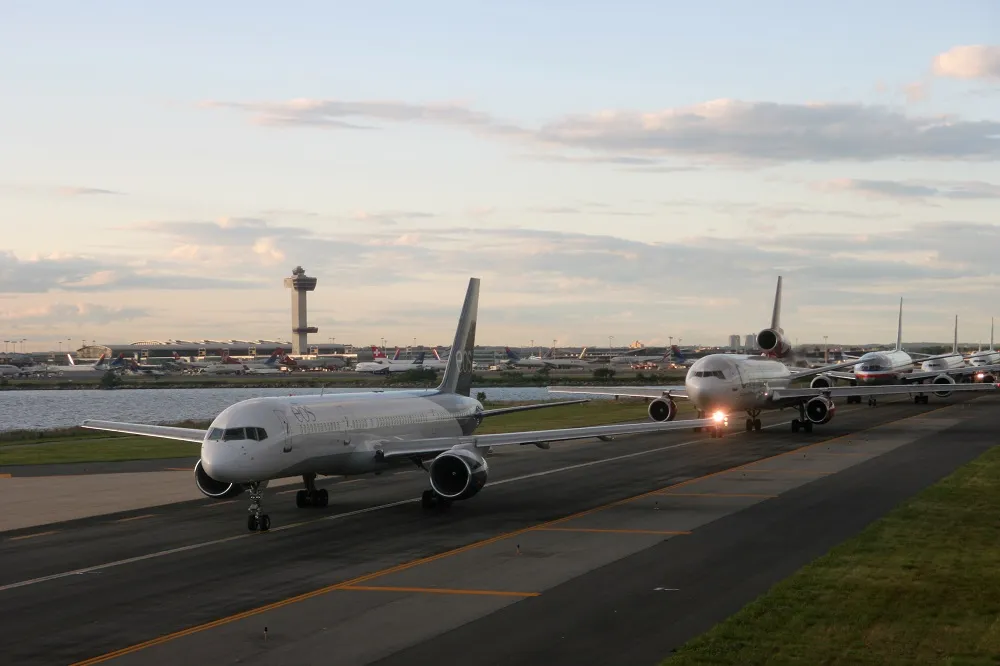
EU travel downgrade deals a blow to trans-Atlantic recovery
Sep 01, 2021

Recent downgrades in travel advisories by the European Union have posed significant challenges to the trans-Atlantic recovery from the pandemic. As restrictions tighten and concerns over safety arise, the anticipated resurgence in tourism and business travel between Europe and the United States faces setbacks. This situation not only affects travelers but also impacts various sectors reliant on cross-Atlantic interactions, including hospitality and airlines. The downgrades reflect ongoing uncertainties surrounding public health and safety, hindering efforts to restore confidence and stimulate economic growth across the Atlantic region. The ripple effects could delay a full recovery for both economies.
Understanding the Impact of EU Travel Downgrade
In recent months, the travel landscape between the EU and the United States has faced significant challenges. The decision to downgrade travel status has sent ripples through the tourism and hospitality industries, impacting both economies. This article delves into the implications of the EU travel downgrade, exploring how it affects trans-Atlantic recovery and the broader travel ecosystem.
Current State of EU Travel Restrictions
The EU has implemented various travel restrictions to manage the spread of COVID-19. These restrictions have included limiting the entry of travelers from certain countries and requiring proof of vaccination or negative test results. As the travel restrictions evolve, the recent downgrade has raised concerns about the recovery trajectory for both European and American tourism sectors.
Chart: EU Travel Downgrade Effects
The following table summarizes the key aspects of the EU travel downgrade and its effects on trans-Atlantic travel:
| Aspect | Description | Impact |
|---|---|---|
| Travel Restrictions | Increased testing and quarantine requirements for travelers from the US | Reduced travel volume and consumer confidence |
| Tourism Revenue | Decline in tourism spending from US travelers to the EU | Negative impact on local economies and businesses |
| Airline Operations | Reduction in flights between the US and EU | Increased ticket prices and limited options for travelers |
| Consumer Sentiment | Heightened anxiety about international travel | Decreased willingness to book trips to Europe |
The Economic Ripple Effect
The economic fallout from the EU travel downgrade extends beyond just the tourism sector. Businesses that rely on international customers, such as restaurants, hotels, and local attractions, have already started feeling the pinch. The decline in travel has resulted in job losses and reduced revenue, leading to a slower overall economic recovery for regions heavily dependent on tourism.
Furthermore, the travel downgrade has implications for trade relations. As both economies strive to recover, the interconnected nature of global commerce means that any slowdown in one area can have cascading effects. The reduction in travel could lead to diminished cultural exchange and collaboration opportunities, which are vital for fostering strong international relationships.
Adapting to the New Normal
In light of the EU travel downgrade, businesses must pivot and adapt to the changing environment. Here are some strategies that stakeholders can implement to mitigate the impacts:
- Enhance Safety Protocols: Establishing stringent health and safety measures can help reassure travelers. This includes increased sanitation practices, contactless services, and clear communication regarding safety measures.
- Flexible Booking Policies: Offering flexible booking options can encourage travelers to book with confidence. Refundable options and easy rescheduling can alleviate concerns over potential cancellations.
- Targeted Marketing Campaigns: Businesses should focus on targeted marketing to attract domestic travelers and those from nearby regions who may still be willing to travel despite the restrictions.
Looking Ahead: Hope for Recovery
Despite the current challenges posed by the EU travel downgrade, there is hope for recovery in the trans-Atlantic travel market. As vaccination rates continue to rise and travel restrictions are reassessed, there is potential for a resurgence in travel. Stakeholders in the tourism industry must remain proactive in adapting to the situation to capitalize on opportunities as they arise.
Government support plays a crucial role in facilitating recovery efforts. Policymakers can assist by implementing measures that promote safe travel, such as travel corridors, incentivizing domestic tourism, and supporting businesses impacted by the downturn. Collaborative efforts between governments and the private sector will be key to revitalizing the travel industry.
The Path Forward
In conclusion, the EU travel downgrade has certainly dealt a blow to trans-Atlantic recovery, but it also presents an opportunity for innovation and resilience. By focusing on safety, flexibility, and targeted marketing, businesses can navigate these turbulent times and prepare for a more robust recovery in the future.
As we look ahead, it's essential to remain optimistic and proactive in addressing the challenges faced by the travel industry. By working together, we can foster a safe, vibrant, and thriving trans-Atlantic travel experience once again.
Related Articles

Explore Thailand: The Best Islands to Visit for Paradise, Adventure, and Relaxation

The Ultimate Guide to the Best Islands in Thailand for Your Next Getaway

Do babies need passports? How to get a passport for a newborn

How to get a U.S. passport fast: here’s how to expedite the process

What is Mobile Passport Control: 5 reasons why you should use it

SENTRI vs. Global Entry: A detailed guide

Do you need a passport to go to the Bahamas? Let’s find out

Do you need a passport to go to Mexico? A detailed guide

Do you need a passport to go to Canada? We got the answer

Do You Need a Passport for a Cruise: An Essential Travel Guide

Booster Seat Requirements: All the Rules to Follow in Your Rental Car

What Are the World’s Most Powerful Passports, and How Does Yours Rank?

How to Take a Passport Photo at Home: A Helpful Guide

You've got to have heart! Southwest's new livery

Your opinion: Should water be free on low cost carriers?

Young women bolder than guys as solo travellers
